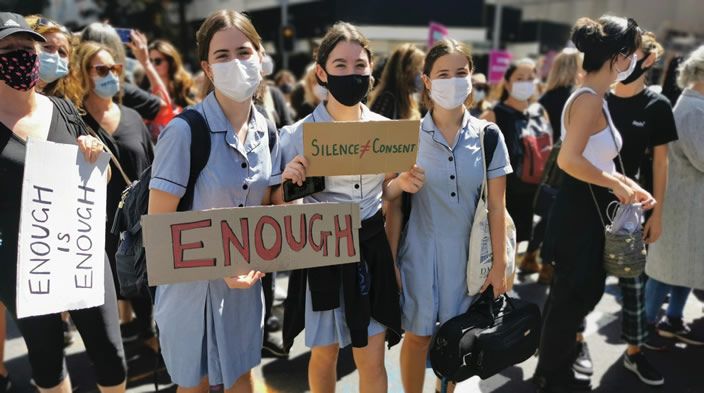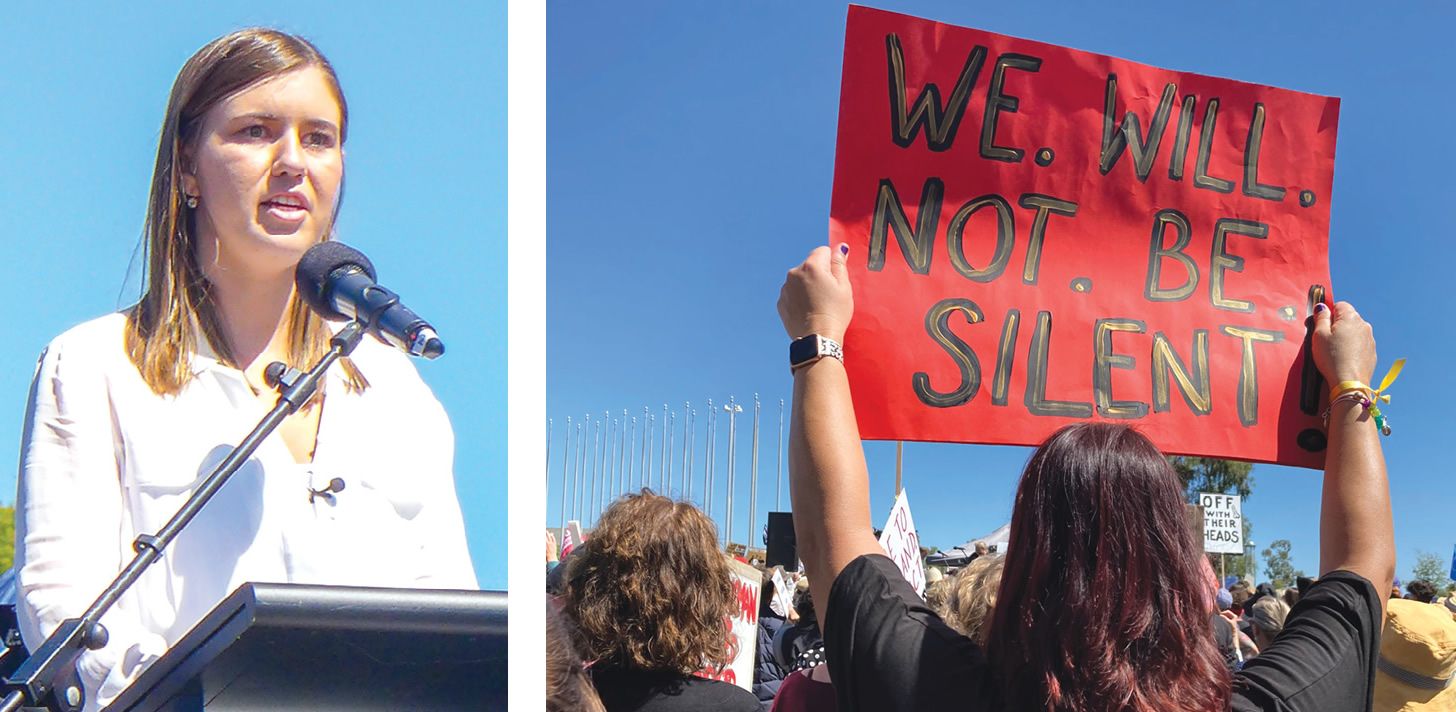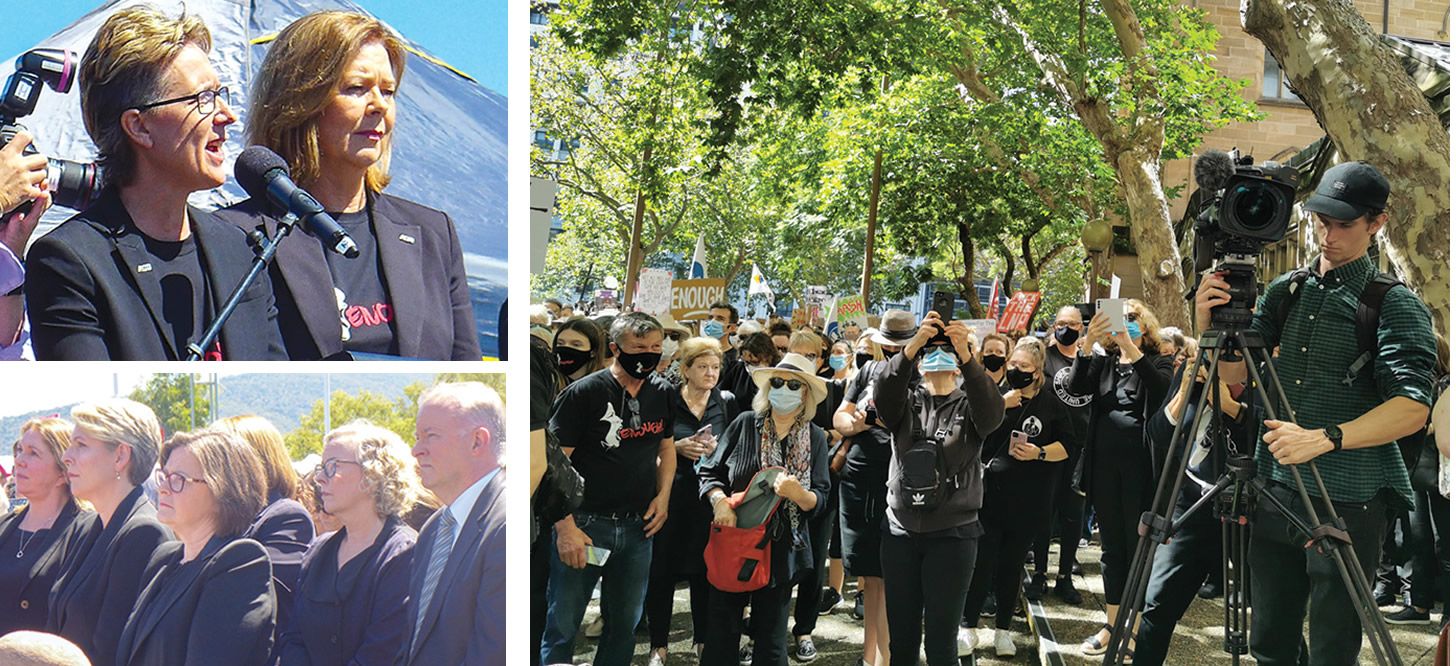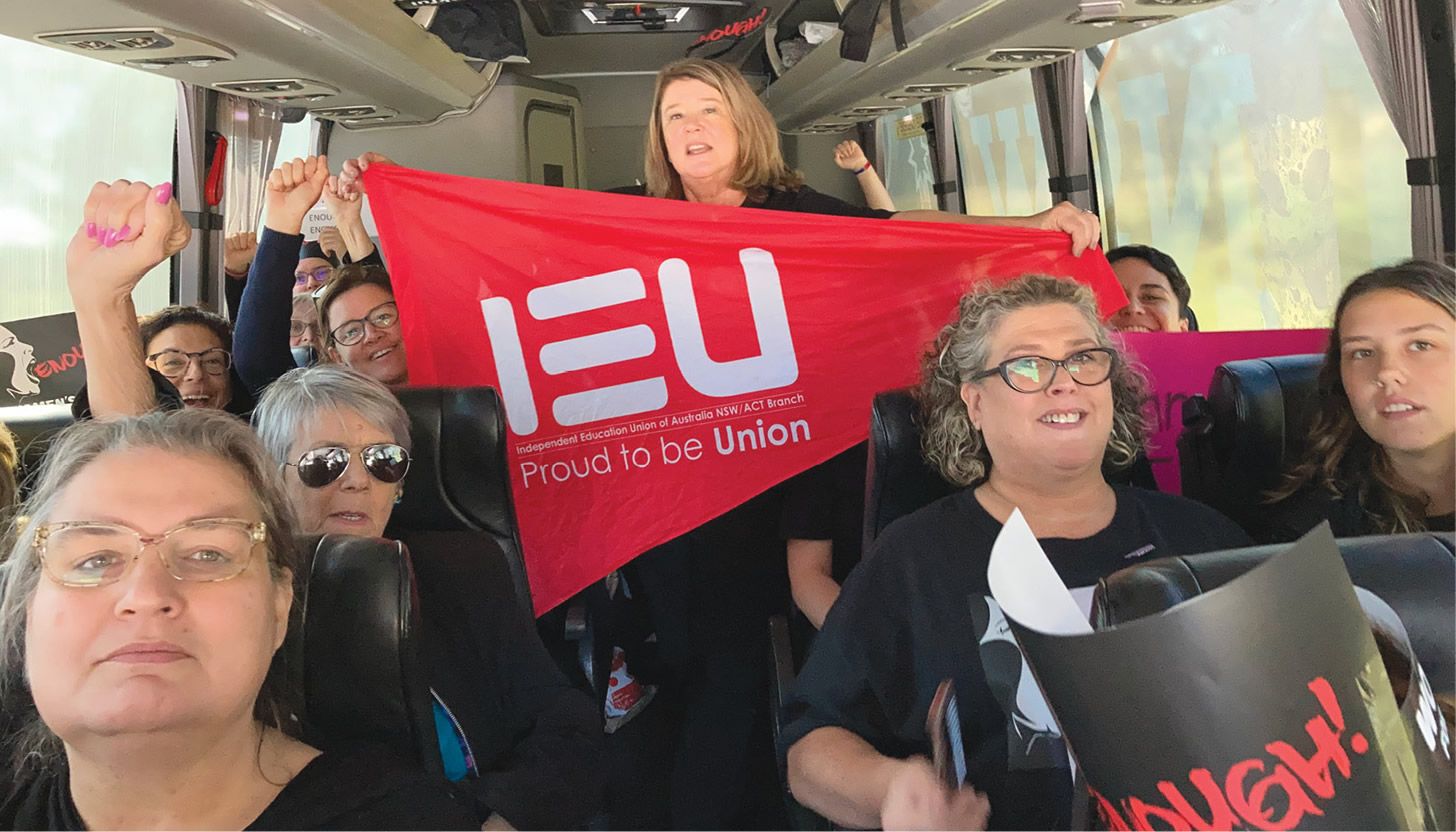
We need to talk about sex. And consent. And respect for girls and women. Journalist Monica Crouch looks at national events and what they mean for teachers.
What started as a straightforward question posed on Instagram by former Kambala student Chanel Contos rapidly morphed into a petition that collected thousands of allegations of sexual assault of girls in Sydney independent schools. The assaults are alleged to have been perpetrated by the boys of these schools.
Anyone who’s read even a handful of the 3500 responses in this petition knows just how harrowing it is. Unsurprisingly, the girls are calling for better consent education.
“I have lived in three different countries and I have never spoken to anyone who has experienced rape culture the way me and my friends had growing up in Sydney among private schools,” Contos said in an interview.
IEU NSW/ACT Branch Secretary Mark Northam says the petition is nothing short of “an inflection point in history”. So where do we go from here?
Groundswell gains momentum
NSW Education Minister Sarah Mitchell commended the girls and young women for speaking up, and several principals have spoken out in the media, including Wenona Principal, Briony Scott and former Principal of The King’s School, Tim Hawkes.
“It happens within schools, between schools, and between schools and the community,” Scott wrote in the Sydney Morning Herald on February 24.
“Sexual assault is a cultural issue – not a school sector, or a ‘it would never happen here’, or ‘but my kid is a good kid’ issue. That someone’s abuse would be categorised by what they wore, how much they had to drink, or what school they went to is profoundly not the point. That it happens at all? This is the point.”
In subsequent weeks, women and their allies, rocked by this petition, allegations of rape in Parliament House and separate assault accusations against the Attorney-General, Christian Porter, protested in their tens of thousands at “March4Justice” rallies throughout Australia.
Some 8000 converged on Parliament House and 10,000 at Sydney’s Town Hall (pictured above). Representatives from the IEU attended both.
Labor MPs Tanya Plibersek, Anthony Albanese, Penny Wong and Sharon Claydon led a delegation from Parliament House to join the protesters. Prime Minister Scott Morrison, and the Minister for Women, Marise Payne, declined to attend this watershed event, at which Brittany Higgins, the political staffer who was allegedly assaulted in Parliament House in March 2019, addressed the assembled.
The protests made headlines around the world. Finally, consent, dignity, justice and respect for women are at the centre of the national – even global – conversation.
Teachers and support staff saving lives
“If you ever want to know what’s actually going on, ask any teacher, especially those who are trained in wellbeing,” Wenona Principal Briony Scott wrote.
“We are the ones who are desperately picking up the broken hearts, trying to hold lives together, and doing our best to remind young people that everything will be OK.”
Teachers’ goals, she said, “are to keep young people alive, keep them safe, and keep them educated – in that order”. Support staff too are on the frontlines, triaging the troubled and traumatised.
Northam agrees. “Schools have been grappling with this issue, much of which happens beyond the school gates, for decades,” he said. “It’s time to explore a new approach. It will require greater resources and staffing, particularly school counsellors and allied health professionals, including psychologists.”
Seeking solutions
The Federal Government has said it will launch a new curriculum on respectful relationships, consent, power and abuse. Yet in NSW, a new Personal Development, Health and Physical Education (PDHPE) curriculum for Kindergarten to Year 10 was introduced as recently as 2018, with reinforced content covering respectful relationships and consent. Northam notes it will take a while for its impact to be felt as students progress through high school.










































































































































